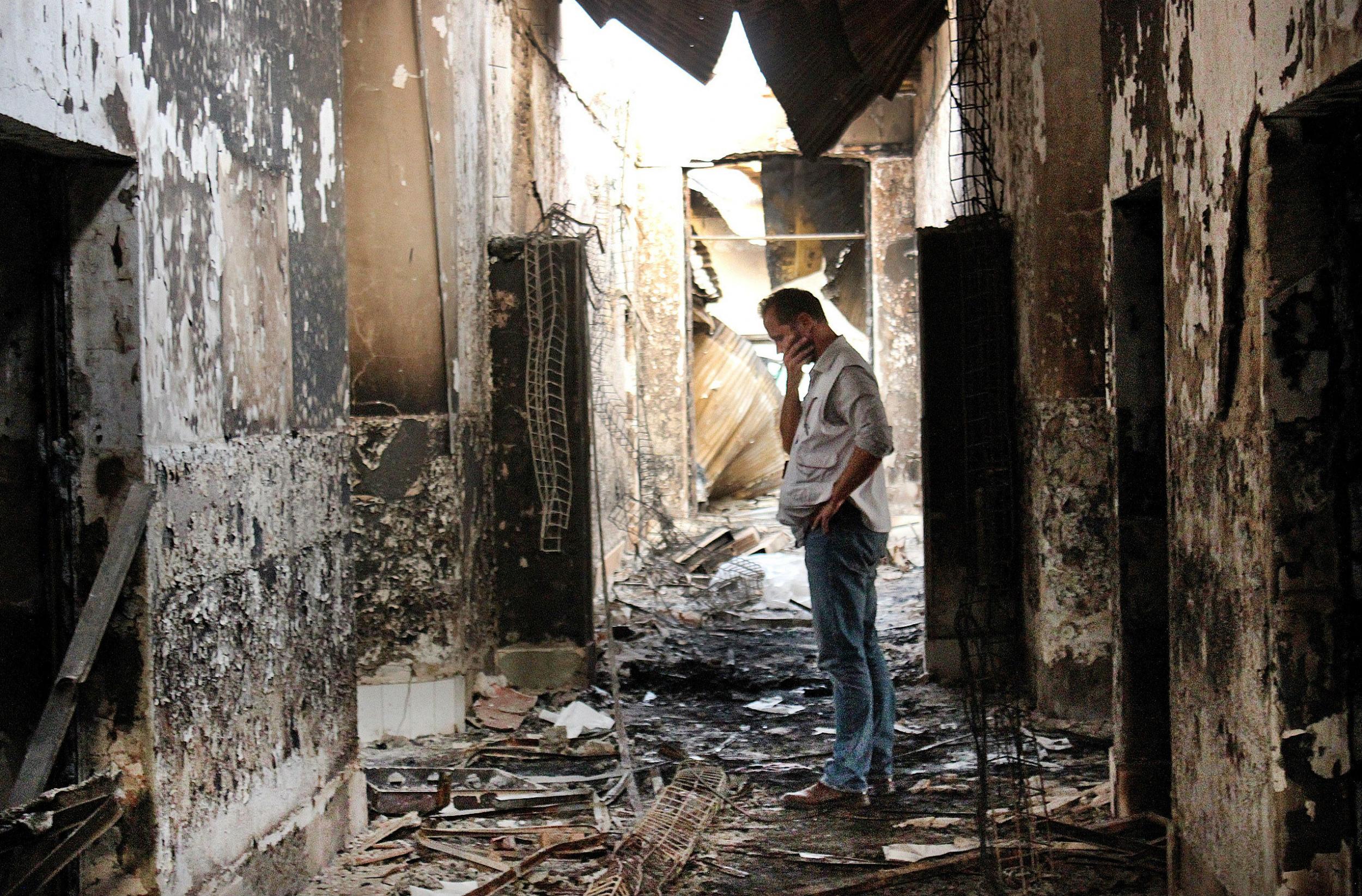Kunduz hospital bombing: US army staff face punishment following deadly attack
The bombing of a Doctors Without Borders hospital last October left at least 42 dead as doctors and civilians were either immediately killed or burned to death

Your support helps us to tell the story
From reproductive rights to climate change to Big Tech, The Independent is on the ground when the story is developing. Whether it's investigating the financials of Elon Musk's pro-Trump PAC or producing our latest documentary, 'The A Word', which shines a light on the American women fighting for reproductive rights, we know how important it is to parse out the facts from the messaging.
At such a critical moment in US history, we need reporters on the ground. Your donation allows us to keep sending journalists to speak to both sides of the story.
The Independent is trusted by Americans across the entire political spectrum. And unlike many other quality news outlets, we choose not to lock Americans out of our reporting and analysis with paywalls. We believe quality journalism should be available to everyone, paid for by those who can afford it.
Your support makes all the difference.US military staff that were involved in a deadly airstrike on a Doctors Without Borders hospital in Afghanistan face punishment, according to officials.
The bombing of the Doctors Without Borders hospital (known by its French acronym MSF) in Kunduz last October killed at least 42 people. The attack happened as Nato-backed Afghan forces fought with insurgents for control of the northern provincial capital, just one month after the Taliban seized the city, their biggest coup after they were ousted from the country by the US 14 years earlier.
The US military found that the bombing of a medical centre full of doctors and civilians was as a result of human error.
Colonel Patrick Ryder, US Central Command director of public affairs, said in a statement said the individuals most closely associated with the incident have been “suspended from their duties and were referred for administrative action”.
“Some individuals were removed from theater,” he said, meaning they had been removed from the conflict.
He said that General John Campbell, the US Commander in Afghanistan, “decided to refer some of the recommendations to [Army Lieutenant General Joseph L Votel, the Commander of the Joint Special Forces Operations Command], for his review and action as appropriate”.
“We are in the process of reviewing those actions and will provide updates when available,” he said.
According to the Guardian, more than 10 military personnel face administrative action, which could range from “negative counselling” - being told not to do something again - to a warning letter, which usually blocks any chance of promotion, one officer said. Those in question could also see their power of command being removed.
A report on the Kunduz attack will be released next week by the Pentagon. Classified material will be removed from the report.
President Obama has apologized and said the government will pay compensation to the victims’ families. Many people had been killed immediately by the bombing, whereas other patients who were unable to move burned to death in the fire that followed.
An initial report of the Kunduz attack, which was carried out by General Campbell, left MSF with more unanswered questions than answers.
The organisation said the bombing a “warcrime” and has called for an international and independent investigation into the airstrike.
US military commanders reportedly took 17 minutes to act after they were warned by MSF that their aircraft was bombing a medical centre rather than what they thought was a Taliban-controlled building a few hundred meters away.
MSF also said it repeatedly gave its coordinates of its trauma center in Kunduz to the US military as late as 29 September to avoid being bombed.
This did not prevent the accident from happening just four days later.
Join our commenting forum
Join thought-provoking conversations, follow other Independent readers and see their replies
0Comments